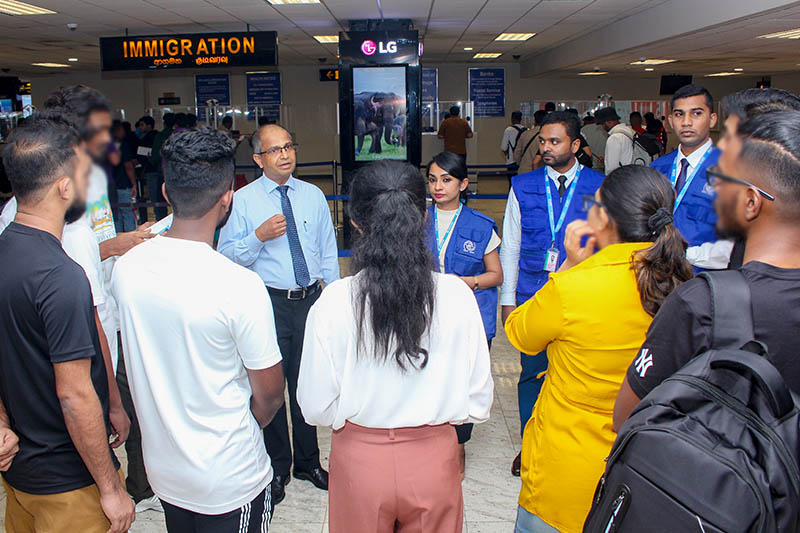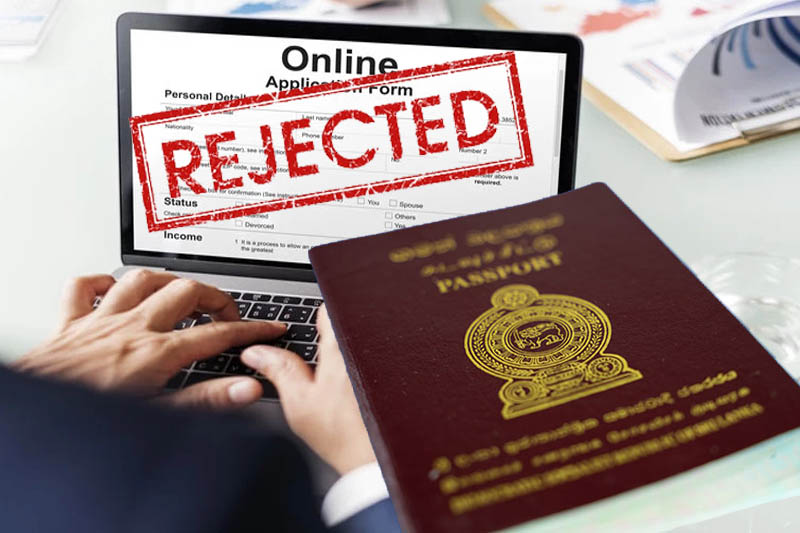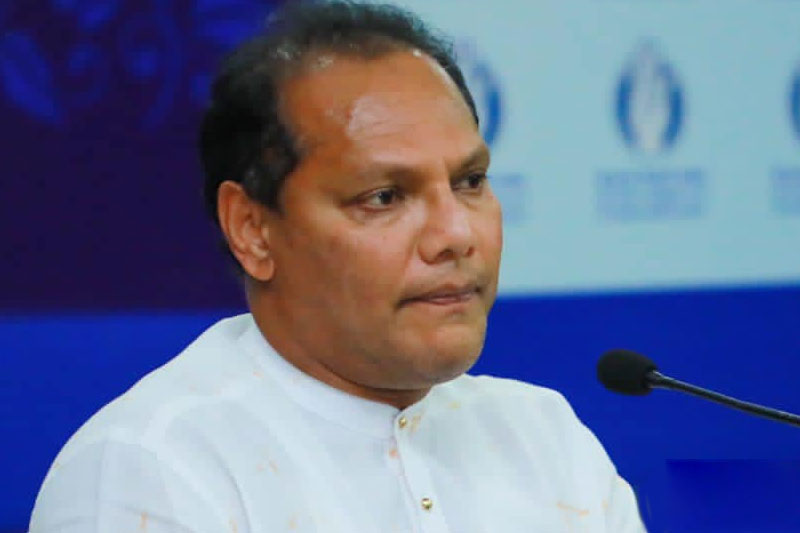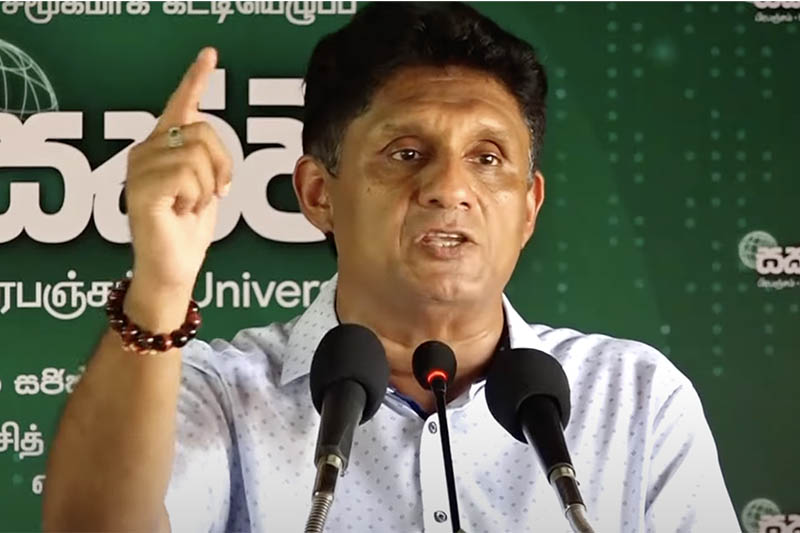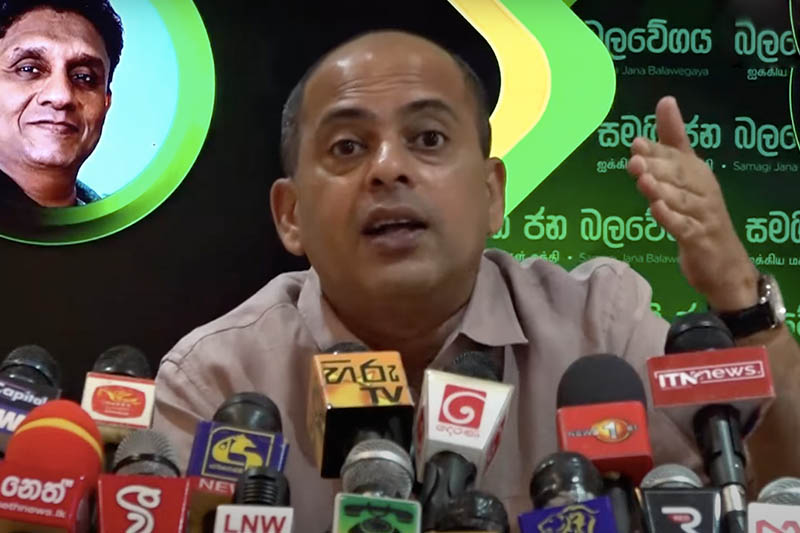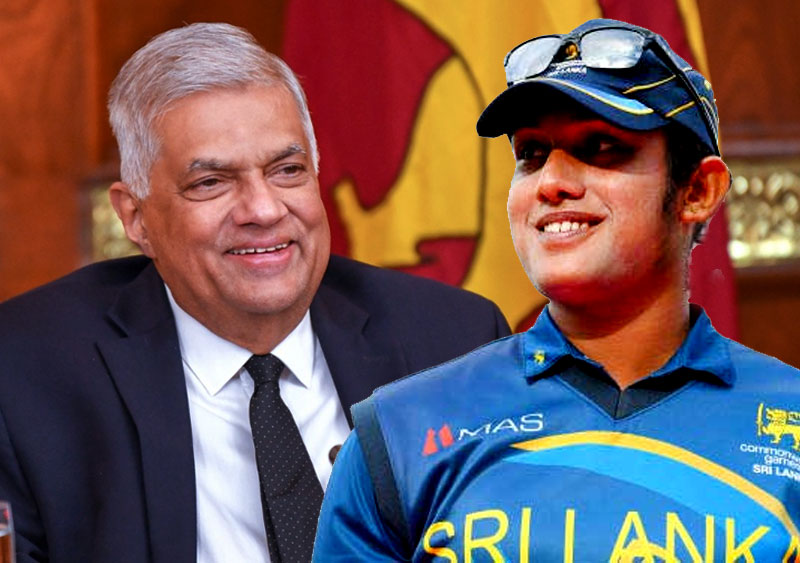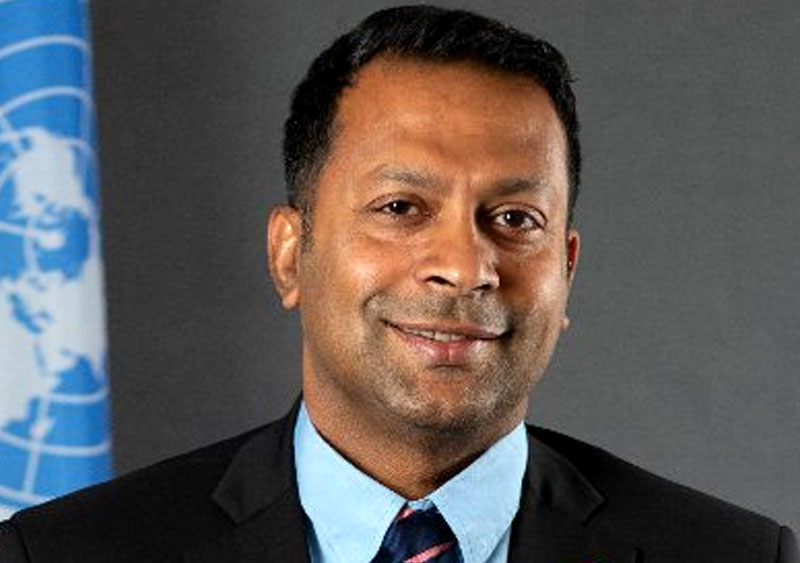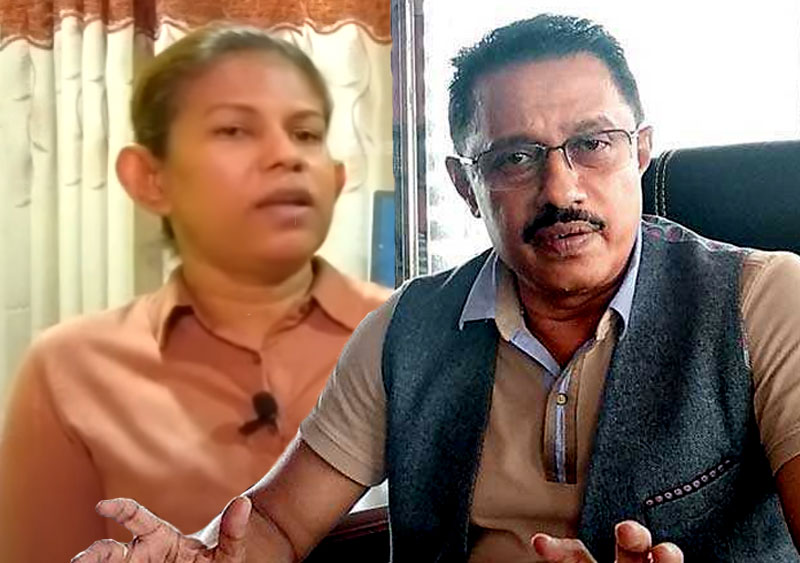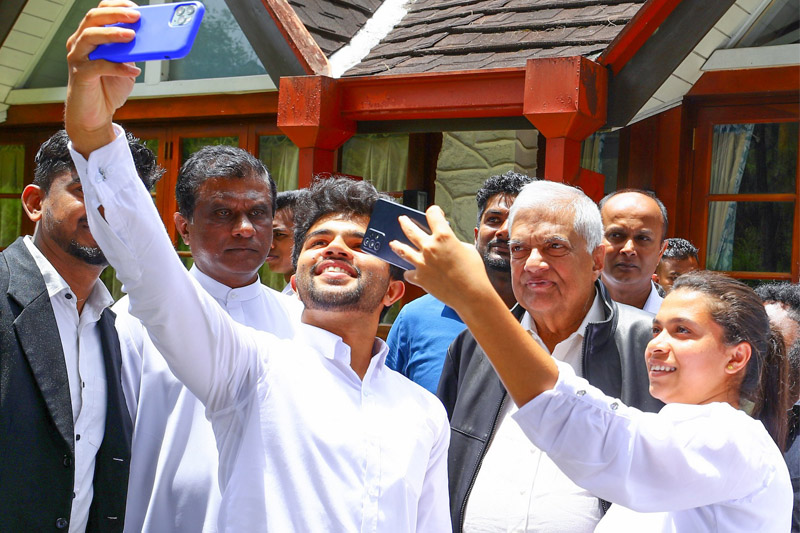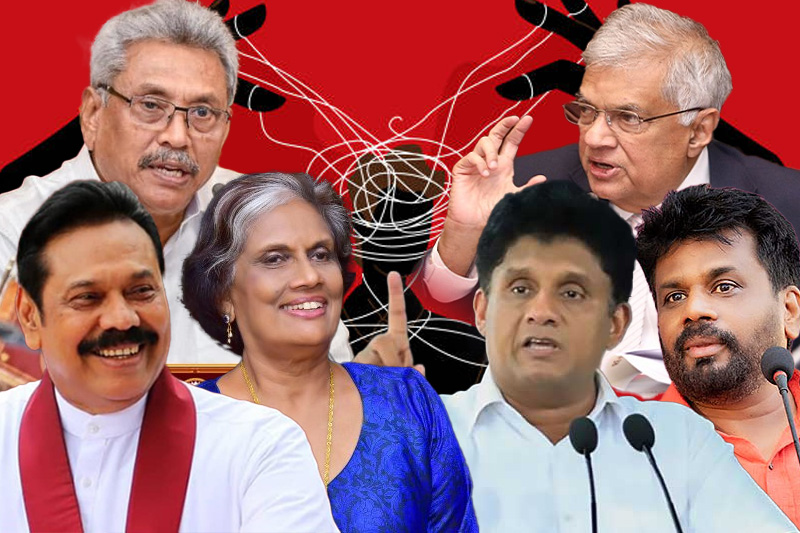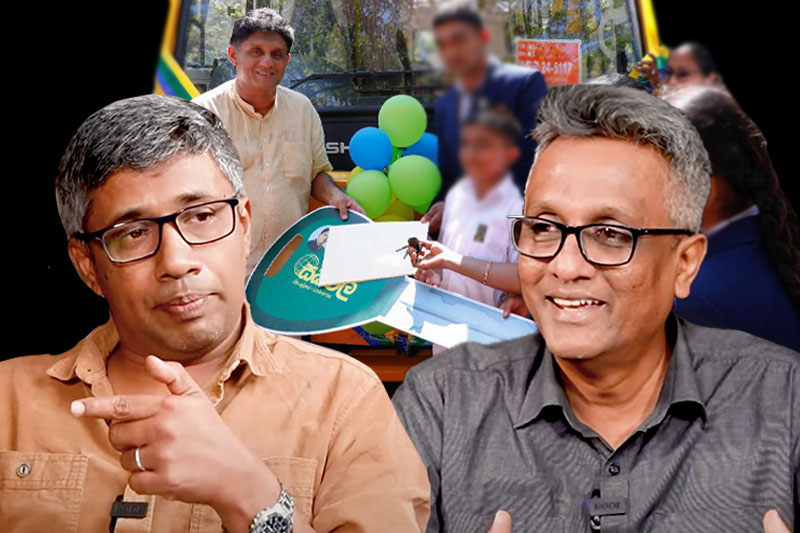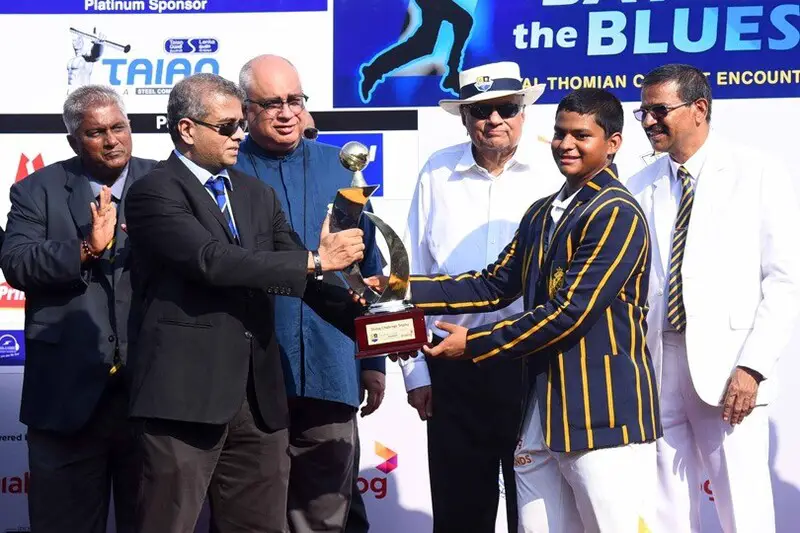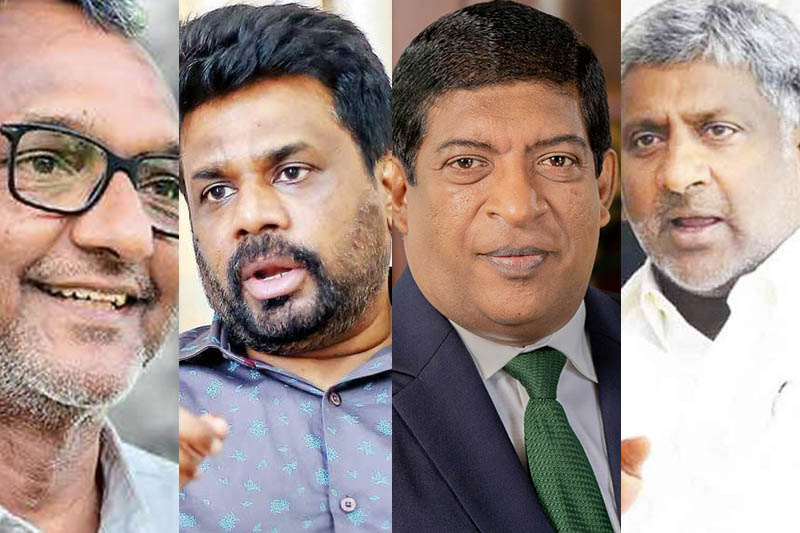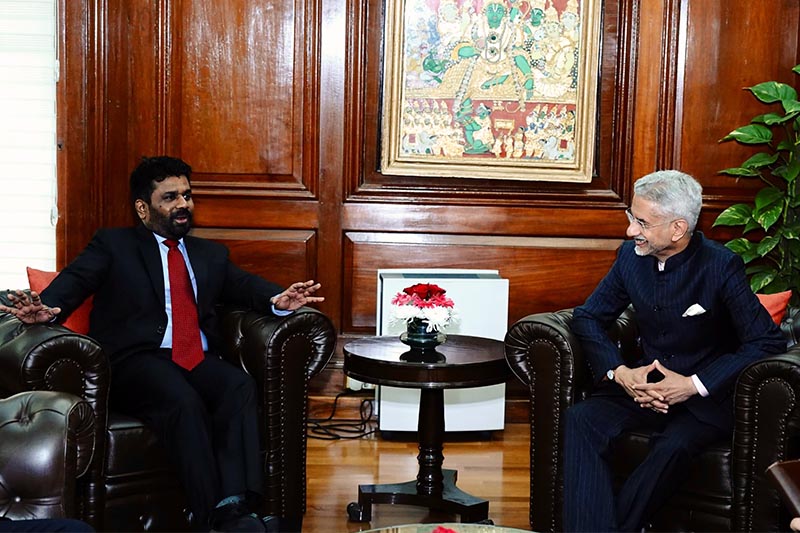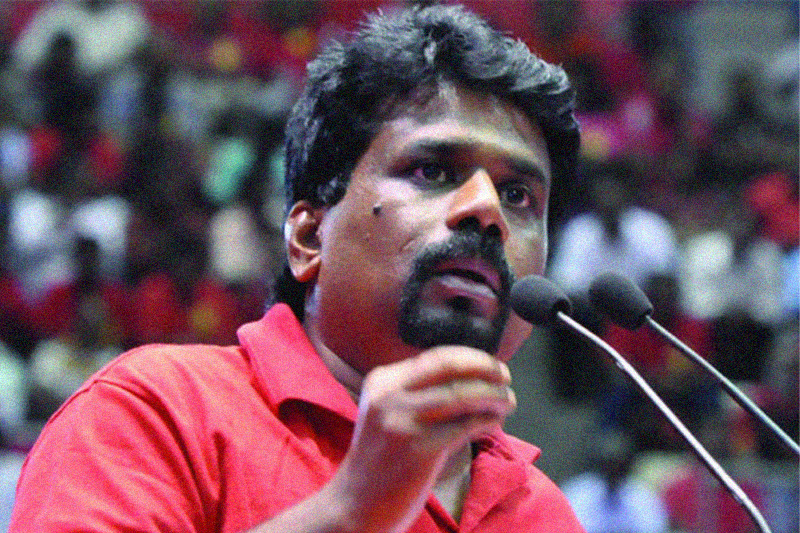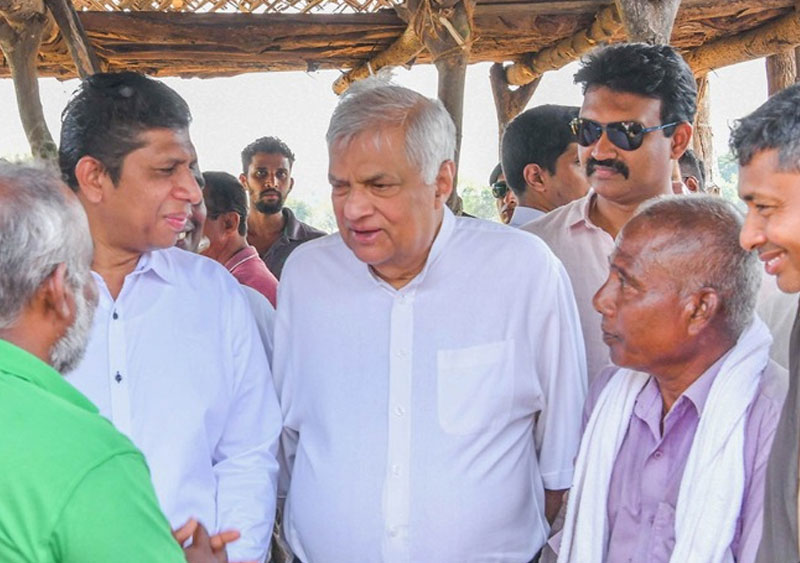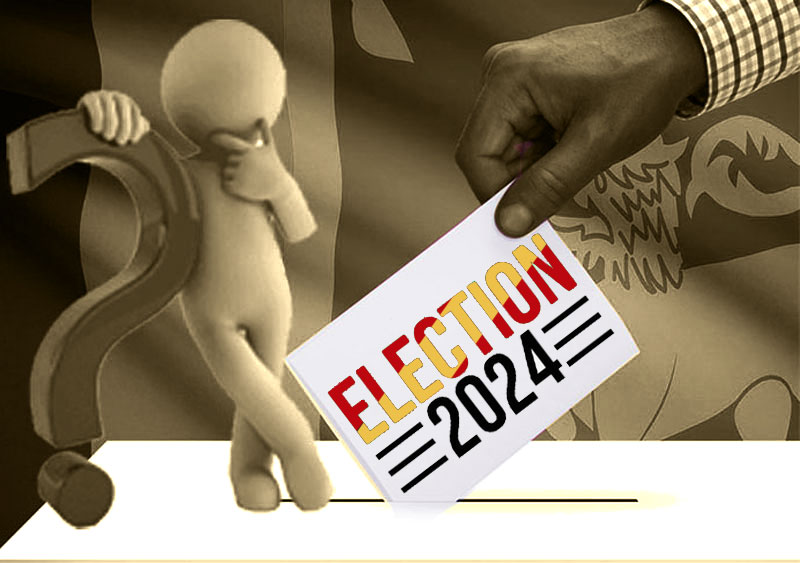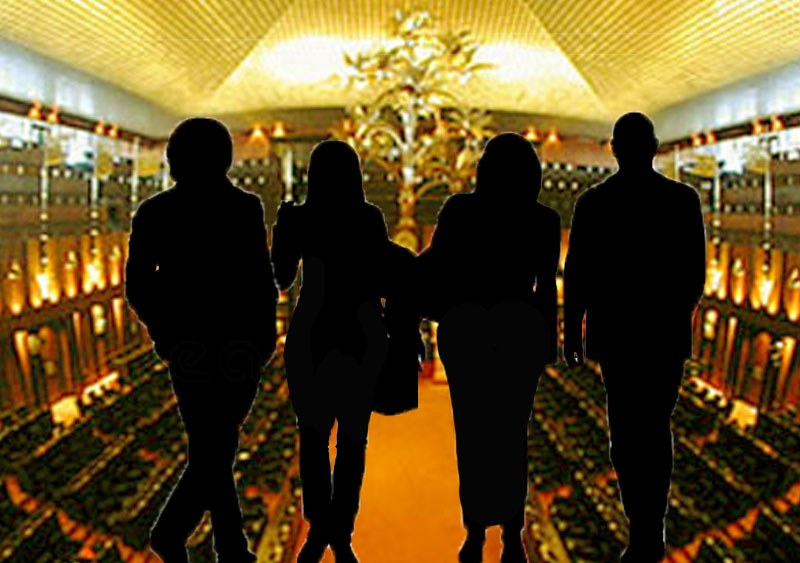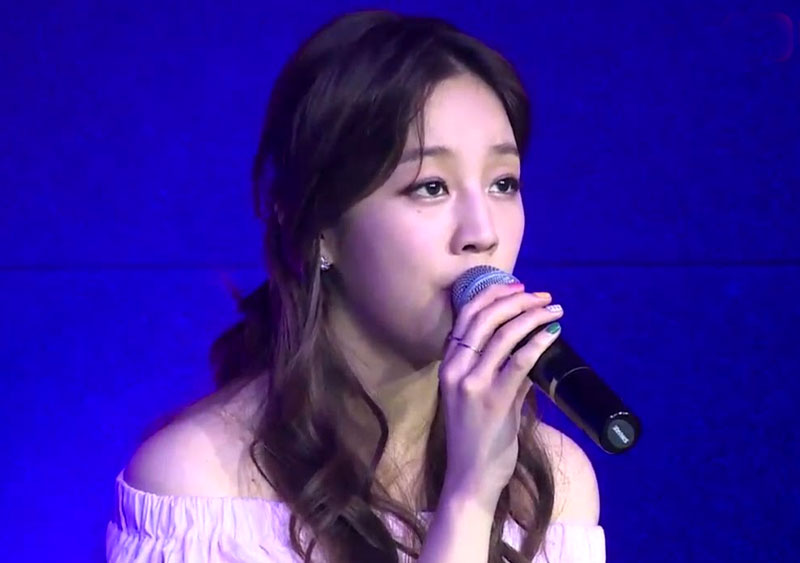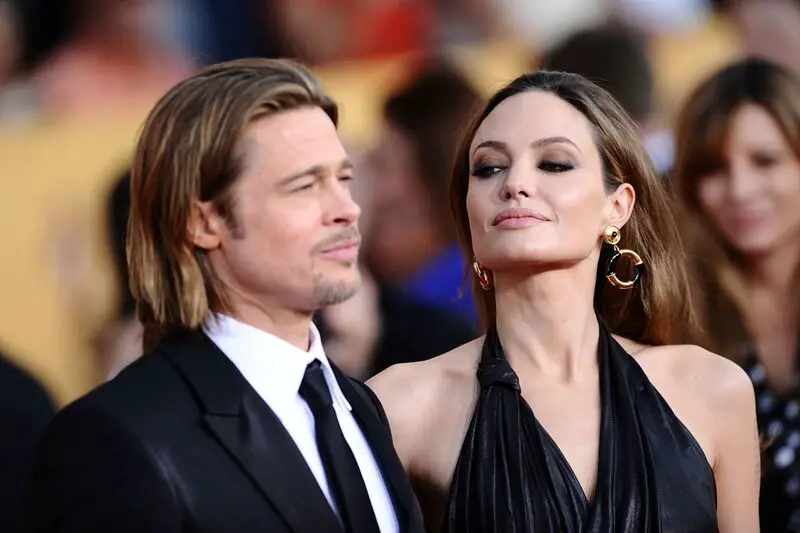Regime Subversion in Sri Lanka: A Presidential Project
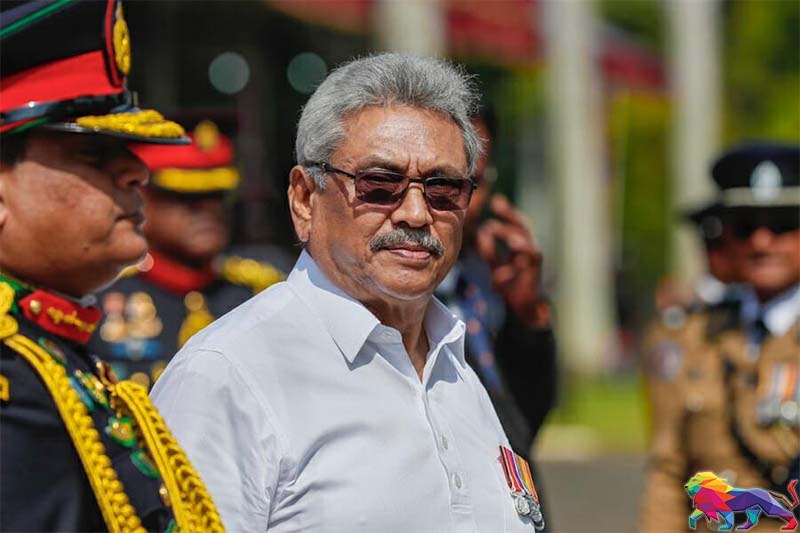
A Leaked Special Report from December 2019
Sri Lanka’s democratic system of government, the integrity of its civil administration and its very national security are facing a silent and unprecedented threat; not by separatism, ideological extremism or foreign interference – as the country’s new right-wing government likes people to believe – but by its own President’s dynastic regime security project.
The most dangerous means employed to this end is politico-military subversion masquerading as patriotic nationalism, social discipline and national security.
The country’s new populist non-traditional President is a strongman and the younger brother of a strongman. He is not a career politician, but belongs to an old political family with multiple members in the executive and legislative branches. His charismatic and politically astute former Presidential brother has settled for the lesser post of Prime Minister – at least for now – only as a consequence of the two-term limit constitutionally re-imposed by his political opponents, after he had unscrupulously scrapped it during his Presidency.
The younger sibling – the incumbent President – is more tenacious, although not as charismatic and politically astute as the elder. Having risen to Lieutenant Colonel in the army, he later migrated to the United States – for economic reasons – where he obtained naturalised citizenship and led a very ordinary life.
Returning over a decade later, he functioned under his elder brother's Presidency as the Secretary to the Ministry of Defence, Public Security, Law and Order – the country's chief security bureaucrat. He was, in effect, de facto Defence Minister and National Security Czar. He enjoyed carte blanche in this role, courtesy of his strongman Presidential brother – a rare privilege he used to great effect in ending the country’s three decade-long separatist conflict and in silencing critics of the then increasingly authoritarian administration.
He did not hesitate to adopt excessive and extrajudicial methods. After five turbulent years in the wilderness, he emerged spectacularly as the country’s seventh Executive President with a millenarian mission he could not accomplish as a bureaucrat – dynastic regime security guaranteed by a compliant majoritarian Sinhalese Buddhist nation.
The President’s past behaviour is a reliable guide to his future actions as nothing appears to have changed, except cosmetically. His preferred style of administration is characterised by concentration of power, surrounding himself with henchmen – mostly former military-men, like himself, and a few subservient civilian functionaries as well as sleazy or sycophantic professionals.
Their grip would rapidly extend across all aspects of national life including economy, education and culture. The President depends on them to get things done arbitrarily and fairly effectively. Subterfuge is often employed on multiple fronts. Summoning senior officials before him or making a casual phone call is enough to get a job done summarily. Chains of command and lines of authority are contemptuously bypassed.
Foreign leaders and diplomats are habitually engaged on his own – often with no Ministers or officials by his side, not even a note-taker. Mandatory and customary documentation that facilitates official accountability are habitually avoided. Written correspondence or official minutes, if at all deemed necessary, are a mere minimalist formality post-action.
Conscientious officials, who meticulously adhere to procedure, are distrusted and kept at bay. He disdains democratic and civil administrative oversight, accountability, and checks and balances. In his own words to a group of loyal Buddhist monks, soon after becoming President, such arrangements are "useless" and a "hindrance."
Getting things done quickly through a close-knit secretive cabal, by subverting the system if necessary, is the President’s preferred modus operandi.
Fear and favour – concealed beneath his new public-friendly persona – are central to his style of governance. Even as a bureaucrat, he expanded his de facto power and influence well beyond his turf through a combination of patronage and intimidation. Planting loyal serving and retired military officers – including highly controversial figures – in senior diplomatic, bureaucratic and public sector executive roles is a favourite practice. They could be easily ordered around. Such is the true character of his much hyped personal brand of “technocracy, meritocracy and efficiency” with which he intends to lure the business, expatriate and aspirational classes that are weary of unreliable traditional politicians who are seen as too selfish and too slow to deliver.
The President’s long-term goal is to fundamentally change the country’s system of administration – even by radically altering the Constitution – to suit his whim. He and his new political party will use both ultra-populist and subversive means to achieve this goal, by securing a decisive majority in Parliament at the General Elections scheduled to take place early next year. If successful, he could claim full legality and legitimacy for his actions even if they erode democratic standards and Fundamental Rights.
The President subscribes to the view that any law, however regressive, constitutes the rule of law. He personally believes that International Human Rights obligations are a hindrance to effective governance, and are irrelevant to Sri Lanka as the country has a millennia-old rich Buddhist heritage with Human Rights ingrained in its social value system. For him, subterfuge has no bounds.
The President’s mindset is still that of an ethno-nationally motivated young Battalion Commander – the average sort with tactical blinkers – who battled Tamil Separatists nearly three decades ago.
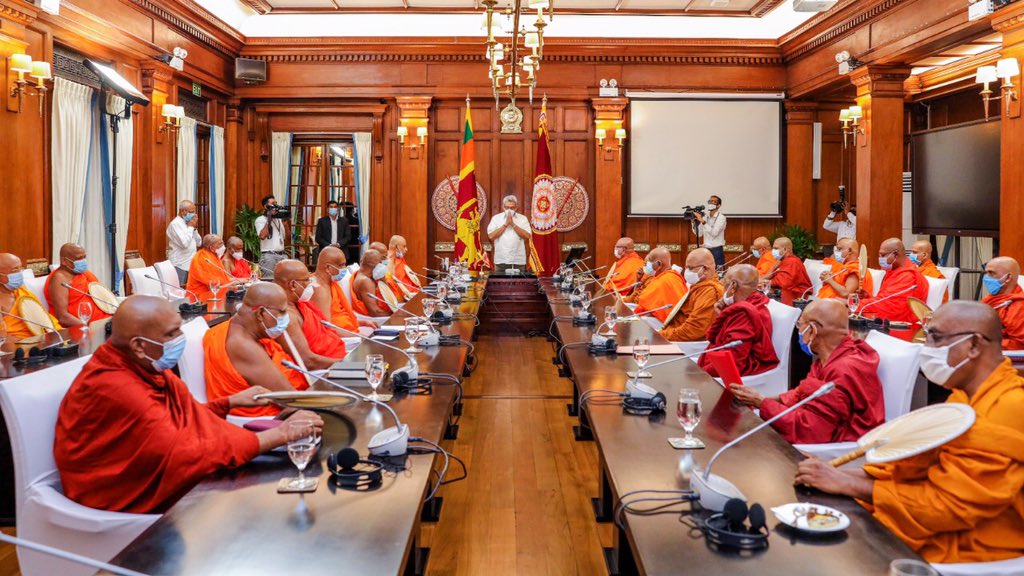
A virulent brand of Sinhalese Buddhist nationalism and a self-motivational belief that he is a reborn ancient Sinhalese king, with a mission to save the nation and religion, are at the core of his personal philosophy. He is grateful to his former field commander, who was killed in action, for inculcating these patriotic values in him when he was a young officer. Such ethno-centric battlefield values eventually found much greater expression in his subsequent bureaucratic and political roles.
Departing from convention, the President delivered his inaugural address to the nation at a historic Buddhist Stupa – in one of the Island’s foremost ancient capital cities – first erected by a Sinhalese warrior-king believed to have defeated Tamil invaders, to save race and religion, over two millennia ago; a historic narrative that suits his ethno-nationalist political agenda and resonates well with the Sinhalese Buddhist masses.
The area is also home to the President’s old “Gajaba” Regiment (named after another ancient Sinhalese king), where he was once based as a young infantry officer. There could not have been a more symbolic venue for him. Speaking to an audience packed with Buddhist monks, he did not mince his words when he asserted that he was exclusively elected by the country's majority Sinhalese community. In true ‘iron hand in a velvet glove’ style, the new President invited the country’s apprehensive ethnic minorities – Tamils and Muslims who voted en bloc for his political opponent – to join him as “true Sri Lankans” for the future progress of the country. Thus was set the tone and tenor for his Presidency.
The President believes that the country’s predominantly Sinhalese Buddhist security apparatus – of which the army is the most favoured and expedient instrument – exists for regime security which, in his playbook, is synonymous with “national security;” a term often hyped to create a psychology of fear and compliance among the citizenry.
There is a new addition to this formula. The official Government Gazette lists "social discipline" as a responsibility to be fulfilled by his favourite Super Ministry with the largest share of the national budget: Defence.
The Constitution – in terms of its most recent amendment – bars the President from holding Ministerial portfolios. However, it did not prevent the new President from arrogating the Defence Ministership to himself in his very inaugural address to the nation. This assertion was not followed-up by any mandatory official notification, nor was another Minister of Defence appointed.
An elder sibling (not the Prime Minister) was made Minister of State for Defence – a non-Cabinet post with no real powers or responsibilities – as a mere formality and façade. The Ministry of Defence, therefore, functions without a de jure Executive Political Head accountable to Cabinet and Parliament. The President – also Commander-in-Chief – has chosen to function as extraconstitutional de facto Minister of Defence by personal fiat; a glaring legal anomaly that dare not be challenged.
The Ministry of Defence, which is the government's apex establishment for civil control and direction of the armed forces, is being rapidly militarised. All civil institutions and functions responsible for public security (such as the police, immigration, intelligence, NGO monitoring etc.) are placed under the purview of this Ministry.
Even worse, a controversial retired Major General – former regimental subordinate and firebrand loyalist of the President – was appointed as Secretary to the Ministry of Defence. He is now chief security bureaucrat of the country – a position previously held by the incumbent President himself. The same official was, rather unconventionally, made Head of the Telecommunications Regulatory Commission – an institution capable of facilitating surveillance of land, mobile and internet communication networks in the country. The intent is clear.
Directed by the President himself, a retired and serving military/regimental cabal (partly consisting loyal former regimental subordinates during his military career) is tightening its grip on the country’s over-centralised security apparatus which includes police and investigatory organs. A climate conducive for regime security and suppression of democratic dissent is thus being created in the guise of promoting patriotic nationalism, and under the pretext of ensuring national security.
In an alarming move, the President has reiterated that Military Intelligence will be strengthened and given primacy in the domestic sphere (the external dimension is taken for granted) which would include law and order as well as public security. The previous government’s miserable public security failures that led to the deadly Easter Sunday terror attacks, in April this year, are used very effectively as a pretext for this militarisation exercise.
The militarisation process, which began as soon as the President was sworn in, seriously undermines the country's democratic governance including the functional integrity of its civil administrative and criminal justice systems.
Hitherto, there was broad recognition that the role of Military Intelligence is to support a range of specific military operations (and assist civil law-enforcement where absolutely necessary) without interfering in, assuming or dominating routine domestic and external intelligence covering public and national security. This arrangement, however, was habitually violated or subverted during the President’s tenure as Defence Secretary.
Alarmingly, he intends to follow the same sinister playbook, albeit at a different level – this time as President, Commander-in-Chief and self-proclaimed Minister of Defence. He credits Military Intelligence with having played a crucial role in defeating Tamil separatist terrorism during his tenure as Defence Secretary. In the same vein, he claims that Military Intelligence could have prevented the ISIS-inspired Easter Sunday terror attacks, earlier this year, had the previous government refrained from restraining its operations. According to his logic, Military Intelligence is the instrument of choice for ensuring “national security.” His motives are sinister.
As witnessed during the President’s tenure as Defence Secretary, Military Intelligence, pervasively operating in public space, could be heavily misused for extrajudicial acts as it functions virtually outside regular oversight. A network of secretive safe-houses in public areas, supported by camps, ensures that Military Intelligence is specially protected and concealed from the law.
Ironically, its modus operandi is still akin to that of the very terrorist cells it was tasked with neutralising in the past. Official initiatives to extensively reform the Intelligence system through legislation (instituting independent oversight to ensure that Intelligence Services function in the national interest and providing safeguards against political exploitation) were blocked or subverted during the President’s tenure as Defence Secretary.
Furthermore, the previous government, which pledged to ensure “good governance,” proved woefully inept in this regard. It directly and indirectly contributed to the present imbroglio through a combination of incompetence, incoherence and indecisiveness.
Exploiting Military Intelligence, for political regime security ends, will effectively stifle efforts at impartial policing and undermine the rule of law. Civilian/police intelligence will be relegated and brought under the military heel. Moreover, Military Intelligence will gain unfettered access to information and processes beyond what are operationally required for military purposes. Consequently, it will be used to subvert and stifle media, trade unions, civil society and political parties. Espionage and covert action will form part of the President’s toolkit for subverting the very fragile professional integrity and impartiality of the criminal justice system and the public service.
Nothing could really disguise the fact that recent armed forces deployments throughout the country, under Presidential proclamation, were really intended to create an environment conductive for Military Intelligence to freely operate. This arrangement is clearly intended to cow the police and to carry out various covert tasks ahead of Parliamentary Elections, scheduled for early next year.
There have been extensive politically-motivated transfers of senior police officers, including that of the Criminal Investigation Department. The latter is responsible for investigating sensitive and high-profile cases involving politicians as well as military personnel, suspected of extrajudicial acts and grave human rights violations during the President’s tenure as Defence Secretary. The police is now firmly under the control of the militarised Ministry of Defence. The independent Police Commission – meant to shield police officers from undue political interference – is effectively emasculated. In the President’s own words, to a group of loyal monks, it is a “useless” organisation and a “hindrance” to appointing “good men.”
In this milieu, the police and its investigatory organs will be quick to shed their little remaining professional impartiality in the service of regime interests. Based on their long record of susceptibility to corruption and politicisation, save few examples of integrity and professionalism, it takes little effort to render them servile or ineffectual. It is a subject the President is well-acquainted with, based on his previous experience as chief security bureaucrat.
The appointment of a serving Military Intelligence officer and Presidential loyalist (who previously worked subserviently under the President when he was Defence Secretary) to Head the State Intelligence Service (SIS) is an unprecedented move and a cause for serious concern. The appointment came soon after the President prorogued Parliament, precluding the possibility of questions being raised there. By the time Parliament is reconvened, ahead of General Elections, a new normal would prevail in the country.
The SIS, with a long history under different nomenclature, is administratively recognised as the country's premier domestic and external Intelligence Service. Consisting mainly of plain-clothed police officers, the SIS subscribes to Section 56 of the British era Police Ordinance for legal cover – “to collect and communicate intelligence affecting the public peace” – and does not require a State of Emergency or any special military deployment to operate. It reports directly to the Defence Secretary, and is responsible – among other things – for monitoring Political Parties, Trade Unions, Media, Students Unions, Associations, Foreign Missions, State Officials, NGOs, Civil Society etc.
The Service is also the nodal through which unaudited secret funds are mainly channelled for various covert purposes. As Defence Secretary, the incumbent President used to arbitrary divert some of those funds for special military tasks. Placing a serving Military Intelligence officer (and subservient Presidential loyalist) as Head of SIS will enable the regime circumvent the very basic existing safeguards against militarisation of the country’s civil Intelligence system. It is the thin end of the wedge as, in due course, more military personnel could be assigned to the SIS for various tasks. In essence, the move constitutes plain and simple subversive assumption of police/civil Intelligence powers by Military Intelligence. Under military control, efforts will be made to acquire new and advanced electronic surveillance capabilities for the SIS for regime security purposes. Based on his diplomatic proclivities, there is little doubt as to which external powers the President will turn to for such technological assistance.
The current militaristic power arrangement clearly indicates how the regime is preparing to subvert the country’s democratic system of government and its civil administration.
A President, Commander-in-Chief and self-proclaimed Minister of Defence with a subversive military mind-set; a controversial regimental loyalist and former army subordinate as Defence/Public Security Secretary and concurrent Head of the Telecommunications Regulatory Commission; an unquestioning former military officer as Chief of National Intelligence (co-ordinating and facilitating all intelligence); a subservient military loyalist as Head of the State Intelligence Service; and a controversial regimental loyalist and former army subordinate as Army Chief. True to form, under the pretext of reducing his security detail, the new President lost no time in replacing his cadre of elite close-protection policemen with army commandos. These military-men will serve as the nucleus of a new Praetorian Guard.
As enumerated, the country’s long-existing democratic system of government, the integrity of its civil administration and criminal justice system as well as its very national security are being subverted, as never before, by its own powerful and populist President.
In the President’s brand of utilitarianism, the end justifies the means. The means are mostly militaristic and subversive. The desired end is millenarian – dynastic regime security guaranteed by a majoritarian Sinhalese Buddhist nation. His brand of ethno-nationalism and cronyism are entirely at odds with his professed technocratic, meritocratic and foreign investment-driven inclusive economic development agenda.
The militarisation project, which is a key element of regime-subversion, will continue unabated if not effectively checked and reversed at the earliest. Whether the country’s political opposition and civil society have the will and wherewithal to do so is very doubtful. As in societies that have suffered from recurrent coups and authoritarian rule, the real danger is that the monster may outlive the maker, in both rogue and official forms, well into the future.

